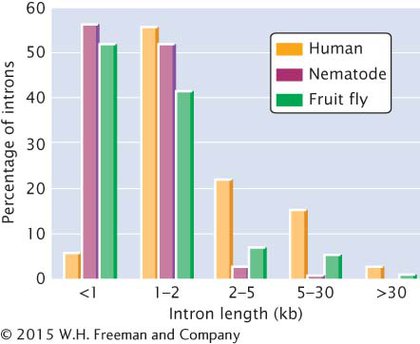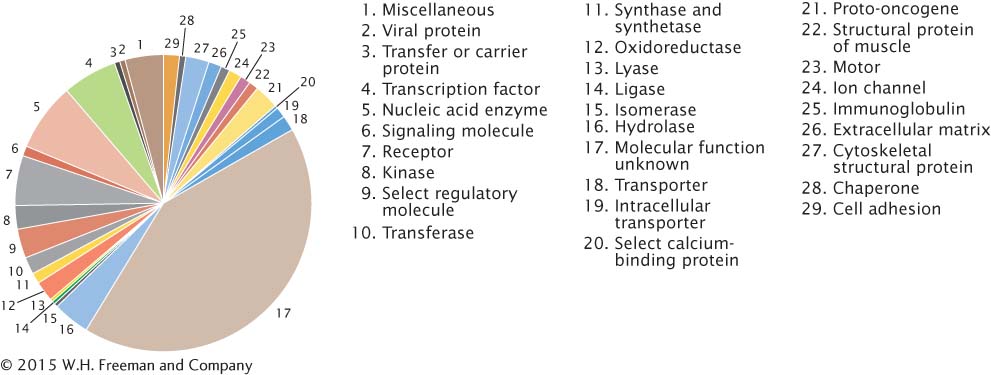The Human Genome
The human genome, which is fairly typical of mammalian genomes, has been extensively studied and analyzed because of its importance to human health and evolution. It is 3.2 billion base pairs in length, but only about 1.5% of it encodes proteins. Active genes are often separated by vast regions of noncoding DNA, much of which consists of repeated sequences derived from transposable elements.
The average gene in the human genome is approximately 27,000 bp in length, with about 9 exons. (One exceptional gene has 234 exons.) The introns of human genes are much longer, and there are more of them, than in other genomes (Figure 15.11). The human genome does not encode substantially more protein domains, but its domains are combined in more ways to produce a relatively diverse proteome. Gene functions encoded by the human genome are presented in Figure 15.12. As in bacteria, the functions of many genes in the human genome are still unknown. A single gene often encodes multiple proteins through alternative splicing; each gene encodes, on average, two or three different mRNAs.

